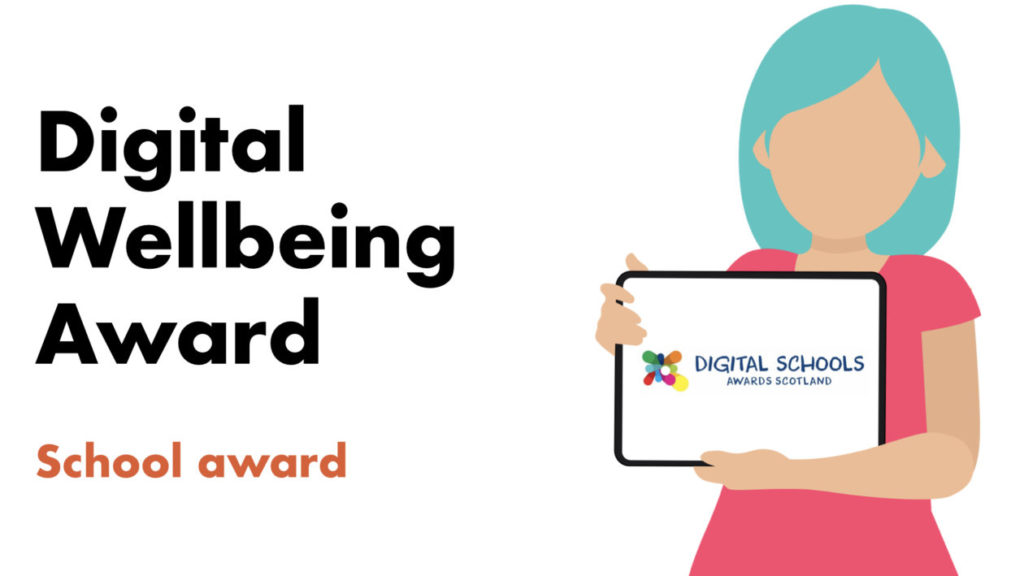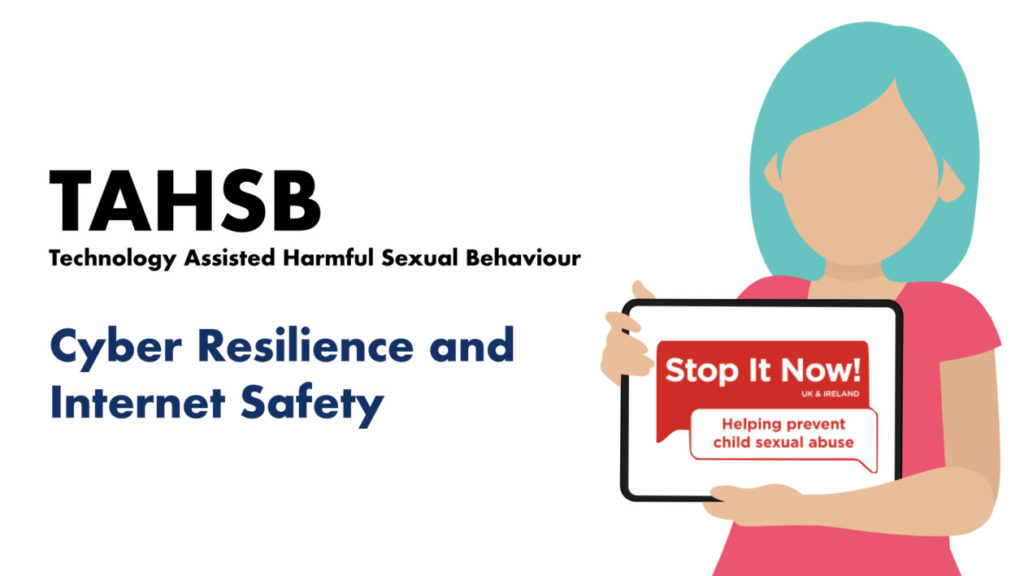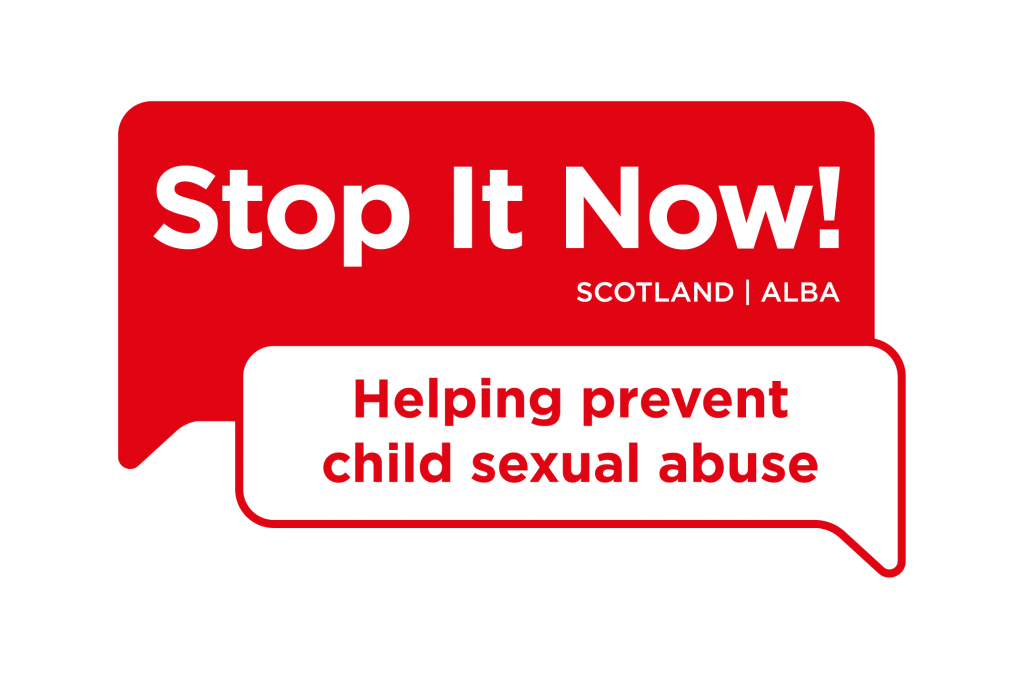Category: Cyber Resilience and Internet Safety
curricular area and keeping learners safer online

The Digital Wellbeing Award for Cyber Resilience and Internet Safety – Digital Schools Award
The Digital Wellbeing Award for Cyber Resilience and Internet Safety is designed to provide education professionals with the resources and support required to help pupils safely navigate the digital world.
Schools that successfully complete the programme receive a nationally recognised award by Education Scotland.
Register your school
Find out more about:

Level 4 Resources for Cyber Fundamentals and Internet Safety
Education Scotland have collaborated with Girvan Academy in South Ayrshire to produce a set of resources that combine the SQA level 4 units in Cyber Security Fundamentals and Internet Safety. These resources reinforce our belief that every learner should have the knowledge and skills to use the internet and online services safely, allowing them to spot potential risks and recover from any potential harm, they face while using online services.
[youtube https://www.youtube.com/watch?v=CfkyddNrw50]
The following teaching resources have been created:
- Getting Started with Chromebook
- Getting Started with iPad
- Getting Started with Online Accounts
- Getting Started with Devices teaching PowerPoint
- Getting Started with Online Accounts teaching PowerPoint
Assessment evidence
The assessor will use the portfolio approach to generate evidence that learners have achieved these units.
A learner must complete the Getting Started with Online Accounts booklet, one of the relevant ”Getting Started with Chromebook/iPad’ booklets (depending on what device they have set up), and then the assessor must complete an observation checklist for every learner:
- Assessor answer booklet
- Observation checklist
- Learner profile
The teacher answer booklet and prior verification certificate can be downloaded from the SQA secure site.

Communicate: technology-assisted harmful sexual behaviour with Stop It Now
[slideshare id=250952889&doc=educationscotlandtacklingtahsbpdf-220106121201]

Communicate – Email
Communicating online carries greater risk than just consuming or creating content because it involves other people and their ability to influence or affect our behaviour.
This page looks at email, which is typically the information required to create other accounts or activate devices, is still the most common form of communication in the workplace and is targeted relentlessly by criminals for financial gain.
The risks:
- phishing emails
- sharing private information (social engineering)
- sharing or receiving content that is inappropriate, offensive or harmful
- reading unreliable, or false, information
- being groomed or exploited
- being bullied

Becoming cyber resilient is the first step to being safer online. Talk to your learners about the devices and accounts that they use to access online information:
- Suggest they have at least two email accounts – one for most important accounts like bank logins and another for social media and shopping apps
- Make sure that email accounts are protected by stronger passwords and 2FA is enabled to stop others from accessing the account without permission
- Show them how to report spam, phishing and other malicious emails on the platform
- Sending phishing emails to NCSC can stop the spread of these messages and limit the harm to others – report@phishing.gov.uk

Being more cyber resilient reduces the risk of internet safety issues arising. We all want the internet to be a more welcoming space for children and young people and that is why we promote this positive message of safe, smart and kind.
With your learners:
- Are they aware of the risk of grooming – what it looks like, how it happens and how to report it?
- Ensure that learners are aware of the risks of direct messaging (DMs) – could they be offensive, harmful or bullying to someone else?
- Even though it may created and shared privately, it probably won’t stay private after you share it so, what does your content say about you?
Information:
When people’s posts are getting you down – Own It –
I want to know more about Cyberbullying – Childnet
Just a joke? – Childnet
I want to know more about Sexting – Childnet
Bullying or Harassment (reportharmfulcontent.com)
Staying-Safe-Online-advice-for-parents-and-carers.pdf (cyberscotland.com)
Communicate – Online Abuse and Harrassment

Communicate – Direct Messaging (DM) Apps
Communicating online carries greater risk than just consuming or creating content because it involves other people and their ability to influence or affect our behaviour.
This page looks exclusively at direct messaging (DM) apps, such as Snapchat and Whatsapp, not social media or gaming which also have messaging features. Dating apps, such as Grindr and Tinder may also be considered as Messaging apps but we do not currently have age appropriate content on those platforms.
The risks:
- sharing private information
- sharing or receiving content that is inappropriate, offensive or harmful
- reading unreliable, or false, information
- being groomed or exploited
- being bullied
- receiving inappropriate images or messages
- phishing scams

Becoming cyber resilient is the first step to being safer online. Talk to your learners about the devices and accounts that they use to access online information:
- Make sure that platforms are protected by stronger passwords and 2FA is enabled to stop others from accessing the account without permission
- Ensure they are aware of privacy settings, such as who can see or share your messages, media or location (Snapchat Snapmaps are enabled by default and allow other users to see your exact location)
- Check that they are aware of the risks of grooming, cyberbullying and scams
- Show them how to report concerns on the platform
- Forward phishing messages to NCSC on 7726

Being more cyber resilient reduces the risk of internet safety issues arising. We all want the internet to be a more welcoming space for children and young people and that is why we promote this positive message of safe, smart and kind.
With your learners:
- Are they aware of the risk of grooming – what it looks like, how it happens and how to report it?
- Ensure that learners are aware of the risks of direct messaging (DMs) – could they be offensive, harmful or bullying to someone else?
- Even though it may created and shared privately, it probably won’t stay private after you share it so, what does your content say about you?
Information on behaviours:
When people’s posts are getting you down – Own It –
I want to know more about Cyberbullying – Childnet
Just a joke? – Childnet
I want to know more about Sexting – Childnet
Bullying or Harassment (reportharmfulcontent.com)
Staying-Safe-Online-advice-for-parents-and-carers.pdf (cyberscotland.com)
Communicate – Sharing Intimate Images
shared in relationship, tricked into sending (grooming/sextortion) or stolen from account
Communicate – Grooming

Communicate – Livestreams
Livestreaming is an increasingly popular method of communicating with people across the world. They can be based on any sort of content but often centre around sports and gaming.
Learners should be aware of the risks of inappropriate content in livestreams, the pressure to provide tips, subscriptions or sponsorship, and the risks associated with talking to others on streams, whether friends or strangers.
The risks:
- pressurised into purchases, tips, sponsorships or subscriptions
- inappropriate content

Becoming cyber resilient is the first step to being safer online. Talk to your learners about the devices and accounts that they use to access online information:
- Make them aware of any potential risks, such as inappropriate content and costs
- Ensure they have privacy and security settings enabled on their streaming platforms and consider where and what they film
- If content is harmful – do they know how to report it?

Being more cyber resilient reduces the risk of internet safety issues arising. We all want the internet to be a more welcoming space for children and young people and that is why we promote this positive message of safe, smart and kind.
With your learners:
- Discuss the risk of watching inappropriate streams
- Ask them to explore and recommend smarter choices for more appropriate streams – this could be class stream reviews alongside book reviews
- Look at how they can be kinder when streaming or commenting on others’ streams

